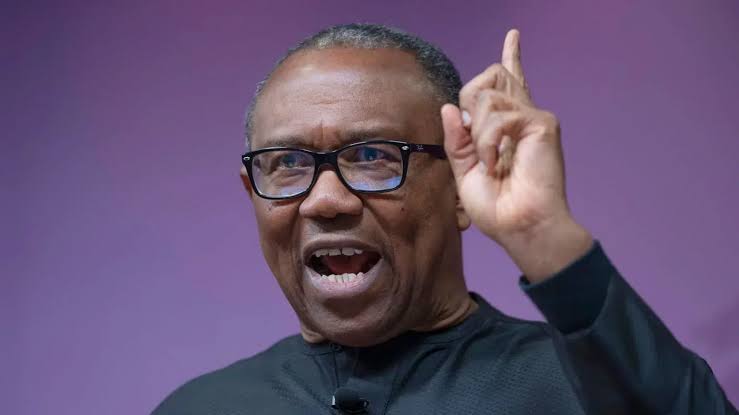Peter Obi, the Labour Party’s presidential candidate in the 2023 Nigerian general election, has described Nigeria as a “difficult place for good people to govern” due to entrenched systemic challenges that stifle progress and leadership. Speaking at an event, Obi painted a vivid picture of a nation at a crossroads, grappling with corruption, insecurity, and economic mismanagement, but brimming with untapped potential. His remarks, delivered with characteristic candor, underscore the complexities of steering Nigeria toward prosperity and the urgent need for transformative leadership to overcome these obstacles.
A Governance Landscape Riddled with Challenges
Obi’s assertion that Nigeria poses unique difficulties for well-meaning leaders is rooted in the country’s deep-seated structural and institutional issues. He highlighted systemic corruption as a primary barrier, noting that it permeates various levels of governance, eroding public trust and diverting resources meant for development. According to Obi, this pervasive corruption creates an environment where even the most principled leaders face resistance when attempting to implement reforms. “Good intentions are often drowned out by a system that rewards self-interest over public good,” he remarked, emphasizing that the machinery of governance in Nigeria is often manipulated to serve entrenched interests rather than the masses.
Insecurity, another critical challenge Obi addressed, continues to destabilize the nation. From banditry in the northwest to insurgency in the northeast and separatist tensions in the southeast, Nigeria’s security crises have crippled economic activities and displaced millions. Obi pointed out that these issues not only deter investment but also make it difficult for leaders to focus on long-term development goals when immediate crises demand attention. “A leader cannot plan for schools or hospitals when communities are under siege,” he said, underscoring the interconnectedness of security and progress.
Economic mismanagement, Obi argued, compounds these challenges. Nigeria, despite being Africa’s largest economy, struggles with a consumption-driven model that relies heavily on imports and oil revenues. Obi lamented the lack of a production-based economy, which he believes is essential for sustainable growth. “We cannot continue to consume what we do not produce,” he stated, pointing to the country’s dependence on foreign goods and services as a drain on its resources. He cited Nigeria’s high unemployment rate, estimated at over 33% in recent data, and the naira’s depreciation as evidence of an economy in dire need of restructuring.
A Vision for Transformative Leadership
Despite the grim picture, Obi’s speech was not without hope. He presented Nigeria as a nation with immense potential, capable of becoming a “beacon of hope for Africa” if led by competent and committed individuals. His vision for the country hinges on a leadership style rooted in transparency, accountability, and a relentless focus on the public good. Obi called for leaders who prioritize the needs of ordinary Nigerians—access to quality education, healthcare, and economic opportunities—over personal or political gains.
Obi’s blueprint for change includes a shift toward a production-based economy. He advocated for investments in agriculture, manufacturing, and technology to create jobs and reduce reliance on imports. Drawing on his experience as the former governor of Anambra State, where he was lauded for prudent financial management and infrastructure development, Obi emphasized the importance of fiscal discipline. “Every kobo must be accounted for,” he said, urging leaders to adopt transparent budgeting processes and eliminate wasteful spending.
Education and youth empowerment were also central to Obi’s message. He described Nigeria’s youthful population—over 60% of whom are under 25—as the country’s greatest asset. However, he warned that without proper investment in education and skills development, this demographic dividend could become a liability. “Our young people are not the problem; they are the solution. But we must give them the tools to succeed,” he said, calling for reforms in the education sector to prioritize science, technology, engineering, and mathematics (STEM) alongside vocational training.
A Call to Action for Nigerians
Obi’s remarks were not directed solely at leaders but also at the Nigerian populace. He urged citizens to demand accountability from their leaders and actively participate in the democratic process. “Change will not come if we wait for someone else to fix Nigeria,” he said. “We must all be part of the solution.” He encouraged Nigerians to reject divisive politics based on ethnicity or religion and instead rally behind leaders with a proven track record of integrity and competence.
Reflecting on his 2023 presidential campaign, which galvanized a significant portion of Nigeria’s youth under the “Obidient” movement, Obi reiterated his commitment to a new Nigeria. While he did not explicitly confirm plans for future political endeavors, his speech carried the tone of a leader still invested in the nation’s future. His ability to connect with younger audiences, particularly through social media platforms, has made him a prominent voice in Nigeria’s political landscape, and his latest comments are likely to resonate with those frustrated by the status quo.
Nigeria’s Potential as Africa’s Beacon
Obi’s vision of Nigeria as a beacon of hope for Africa is ambitious but grounded in the country’s vast resources and human capital. With its large population, abundant natural resources, and strategic position in Africa, Nigeria has the potential to lead the continent in economic growth and innovation. However, Obi stressed that this potential can only be realized through deliberate and sustained efforts to address systemic challenges. “We have everything we need to succeed,” he said. “What we lack is the will to act decisively.”
He pointed to successful African nations like Rwanda, which has made significant strides in governance and economic development, as a model for what Nigeria could achieve with the right leadership. Obi’s emphasis on learning from other African success stories reflects his belief that Nigeria’s challenges, while daunting, are not insurmountable.
Join our Whatsapp channel to stay updated always!


